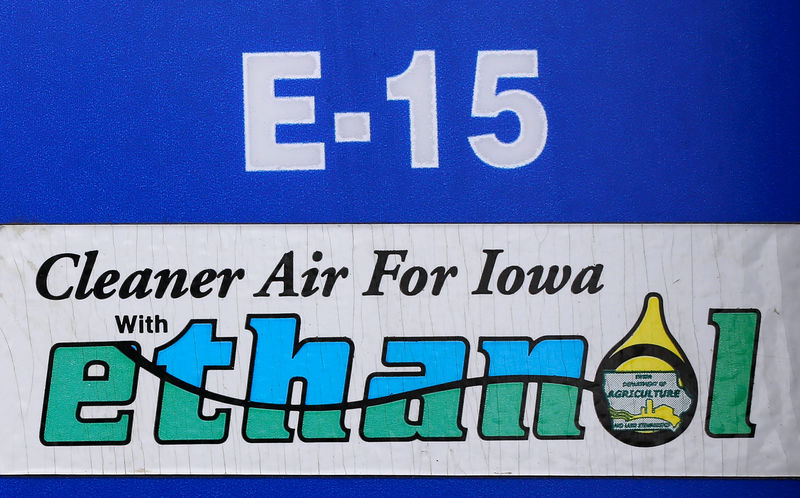By Humeyra Pamuk
WASHINGTON (Reuters) - The U.S. Environmental Protection Agency will probably not be able to finalise its rule allowing year-round sales of higher ethanol blends of gasoline known as E15 by summer, but could compensate by declining to enforce the current summer-time ban, Agriculture Secretary Sonny Perdue said on Wednesday.
President Donald Trump had announced in October he was directing the EPA to allow year-round sales of E15 in a win for the powerful corn industry which supplies ethanol, but the process was delayed by a weeks-long partial government shutdown that furloughed workers.
"Unfortunately those rules probably will not be out for the driving season. But they're committing to, I think the term of art is, discretionary enforcement for those who want to continue to sell E15 in the summer until they get those rules established," Perdue said in testimony to the House Agriculture Committee.
E15 gasoline contains 15 percent ethanol, versus the 10 percent found in most U.S. gasoline. The summer-time ban had been imposed over concerns that E15 contributes to smog in hot weather, though recent studies have shown its impact on air quality may not be significantly different than E10.
The EPA had planned to release a draft of the rule in early February but ran into delay due to the 35 day-long partial government shutdown that began in late December.
Despite the delay, EPA officials have said the agency was still working toward finalising the rule by June 1.
“EPA is planning on releasing its ... proposal in March, and working expeditiously to propose and finalise the rule consistent with the President’s direction before the start of the summer driving season," EPA spokesman Michael Abboud told Reuters in an emailed statement.
The rule is also expected to include simultaneous measures the EPA promised the oil industry to curb biofuel credit speculation.
Under the U.S. Renewable Fuels Standard, oil refiners have to blend increasing volumes of biofuels into the nation’s gasoline and diesel each year, or purchase credits - called Renewable Identification Numbers - from those who do.

Oil companies have complained speculation in the credit market has inflated prices and cost them hundreds of millions of dollars - one of a long list of complaints by the industry about U.S. biofuel policy.